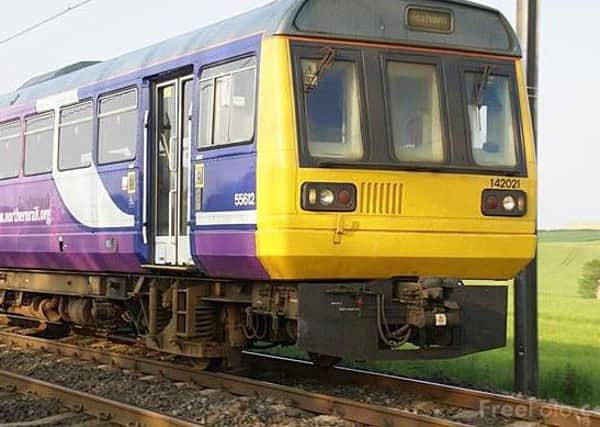The Yorkshire Post says: End of line for Pacers at last. Now increase rail network's capacity


After all, it is almost 30 years since the network last enjoyed the level of investment that is being promised by the transport operator as the antiquated Pacer trains are finally phased out.
A symbol of the North-South divide that exists, it’s ironic that the Pacers – little more than converted buses – will be pensioned off as London’s £14.8bn Crossrail line opens for the first time.
Advertisement
Hide AdAdvertisement
Hide AdYet, while Northern believe that the modernisation programme will replicate the increase in passenger numbers when the key commuter lines from Leeds to Ilkley and Skipton were electrified as part of a major upgrade, the broader question is whether sufficient investment is going into Yorkshire’s rail infrastructure.
If the number of travellers rise by the anticipated numbers, not only will there need to be far more new trains to cope with this demand but existing track will have to be overhauled so sufficient services can operate at peak times – this county should not have to wait for the advent of HS2 for painfully slow journey times to be cut between Leeds and Sheffield, the region’s largest two cities.
And even though Transport for the North has published a draft plan, it will have to be signed off by Transport Secretary Chris Grayling who has demonstrated – repeatedly – that he’s no friend of Yorkshire as he looks to advance Crossrail II. As such, Northern will only maximise its investment by joining forces with rival operators, transport bodies and local councils to press for the Government funds so this region can enjoy the quality, speed and frequency of services that are taken for granted in London and the South East. There’s still a long way to go.